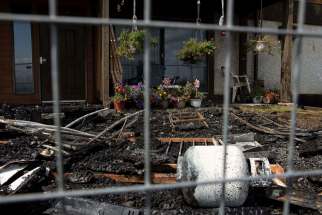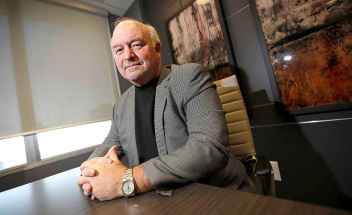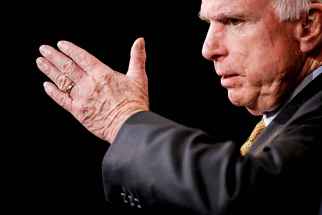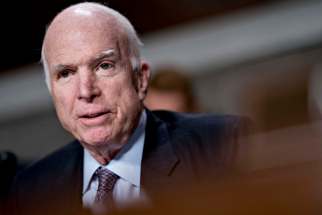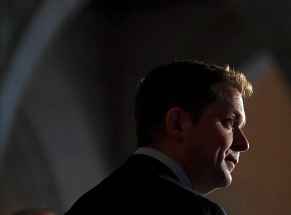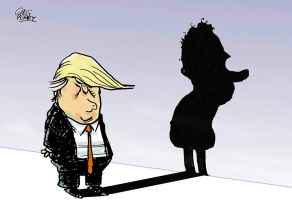John McCain was a great friend — and foe — to U.S. Indigenous peoples
Read this article for free:
or
Already have an account? Log in here »
To continue reading, please subscribe:
Monthly Digital Subscription
$19 $0 for the first 4 weeks*
- Enjoy unlimited reading on winnipegfreepress.com
- Read the E-Edition, our digital replica newspaper
- Access News Break, our award-winning app
- Play interactive puzzles
*No charge for four weeks then billed as $19 plus GST every four weeks. Offer only available to new and qualified returning subscribers. Cancel any time.
Read unlimited articles for free today:
or
Already have an account? Log in here »
Hey there, time traveller!
This article was published 26/08/2018 (2315 days ago), so information in it may no longer be current.
In his last speech to Indigenous peoples, at the National Congress of American Indians (NCAI) in October 2016, an 80-year-old Sen. John McCain reflected on the decades he spent advocating for Native American issues.
As the longest-serving member of the Senate Committee on Indian Affairs (serving twice as chairman in 1995-97 and 2005-07), he was applauded by tribal chiefs and leaders as he listed off his policies that addressed native American inequities in health, education, and government.
The most rousing part of the speech though, was in his condemnation of offences United States corporations and lawmakers had recently committed against Indigenous communities, including the Gold King mining disaster in Colorado, which released three billion gallons of toxic waste into the Animas watershed.
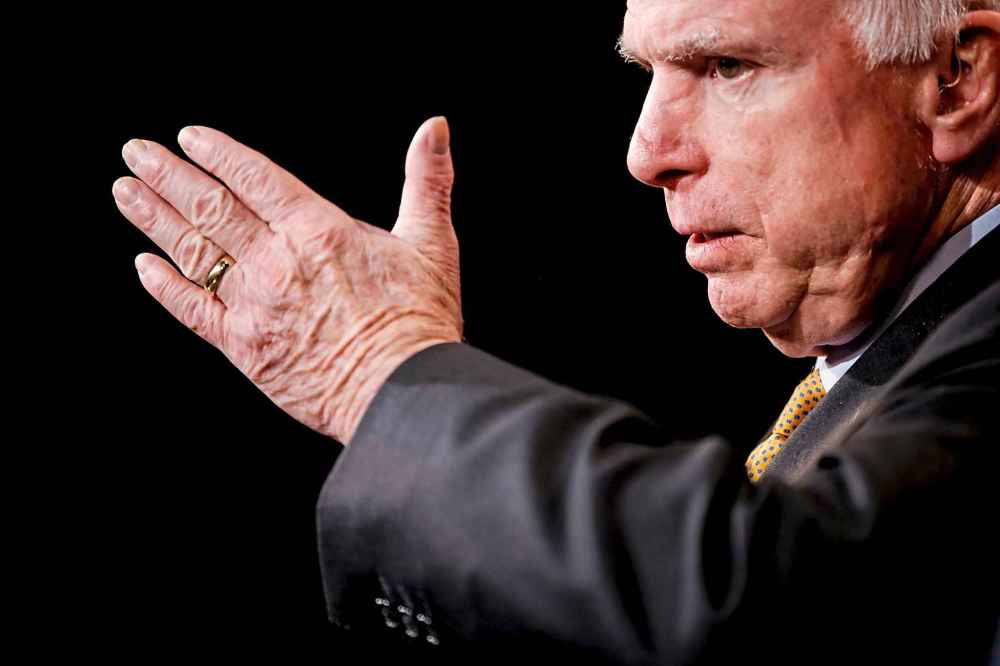
He declared Indigenous leaders were “key to a water future” and the United States should follow their lead, demanding the U.S. “honour the treaties.”
“We must listen more to you,” McCain said, “and get out of the way of tribal authority.”
For most of his time in office, McCain had an affinity for Indigenous issues. While representing a state where he had to (5.3 per cent of Arizona is native American with more than 20 tribal communities), the vigour of his commitment is notable. McCain’s work was not driven by guilt and votes though, for he found a confluence of politics and ethics in Indigenous peoples.
Much of McCain’s record was on enacting the sovereignty of Indigenous nations and the handing over of government responsibilities to tribal governments. A belief in lesser government is a Republican position, of course, but McCain focused specifically on ensuring social inequities were addressed at the same time. He introduced policies and changes such as the Indian Child Protection and Family Violence Prevention Act and the Indian Health Care Improvement Act, and advocated for Indigenous-specific provisions in the Violence Against Women Act. One of his last bills was the Native American Education Opportunity Act, which gave Indigenous parents a chance to send children to non-Bureau of Indian Affairs schools (BIA schools are vastly substandard and federally run).
McCain was a co-creator of the Indian Gaming Regulatory Act, a transformative law that opened up the door for native American-run casinos and economic self-sufficiency. He even went after Jack Abramoff, the lobbyist who defrauded tribal nations in pursuit of casinos.
McCain also expanded the AMBER Alert warning system to include Indigenous communities, mediated water-rights settlements for tribes in Arizona and was central in the building of the Smithsonian’s National Museum of American Indians in Washington, D.C.
His most passionate project for Indigenous peoples was his advocacy of Indigenous veterans, whom he greeted, wrote letters to, and acknowledged consistently. His military relations didn’t forget this: at the mortuary where his body sits now stand two Indigenous veterans.
But this is not all McCain did.
He battled publicly in Arizona with Navajo Nation President Russell Begaye over how to handle corruption, housing and trauma from the tribe’s relocation. He took a hard political line by cutting off funding to the community, resulting in innocent families being harmed.
McCain also had two forces that made him forget Indigenous peoples: campaign fundraising and the military.
Two years before his comments to the NCAI, McCain slid a “rider” (an addition to a passing law that often has little to do with it) to a defence authorization bill that gave access to 2,400 acres of lands claimed by the San Carlos Apache tribe to the Rio Tinto copper-mining company.
San Carlos Apache citizens decried the loss of their traditional lands and the lack of any consultation, likening the impacts a forthcoming mining project would have on their sacred sites as “destroying a church.”
He was one of the best advocates Indigenous peoples have ever had in the United States, but he was a flawed, imperfect politician who set a bar.
In a statement, McCain argued, “To maintain the strength of the most technologically advanced military in the world, America’s armed forces need stable supplies of copper for their equipment, ammunition and electronics.”
Lesser known was the financial benefit McCain received from the bill: he was the top recipient of campaign contributions from Rio Tinto in 2014.
This betrayal wasn’t forgotten by Indigenous activists, who confronted McCain on this and other land-claim violations he oversaw during his visit to Window Rock, Ariz., in August 2015. Filmed and uploaded on YouTube, this confrontation went viral.
The most ironic thing was, in 1989, a younger McCain proposed amendments to the American Indian Religious Freedom Act, which would require governments to consider Indigenous communities and not intrude on “native American religions or religious practices.” Literally standing beside Indigenous activists when arguing for the amendments, McCain passionately argued Indigenous peoples should have legal powers to define and protect their relationships with the sacred — which would include land.
In the end, McCain suffered from a lack of votes and political will and the bill never became law. If it had, it would have likely made his rider 26 years later illegal.
McCain was full of complexity.
He was one of the better advocates Indigenous peoples have had in the United States, but he set a bar. Perhaps a low bar, but an unforgettable one.
niigaan.sinclair@freepress.mb.ca

Niigaan Sinclair
Columnist
Niigaan Sinclair is Anishinaabe and is a columnist at the Winnipeg Free Press.
Our newsroom depends on a growing audience of readers to power our journalism. If you are not a paid reader, please consider becoming a subscriber.
Our newsroom depends on its audience of readers to power our journalism. Thank you for your support.



